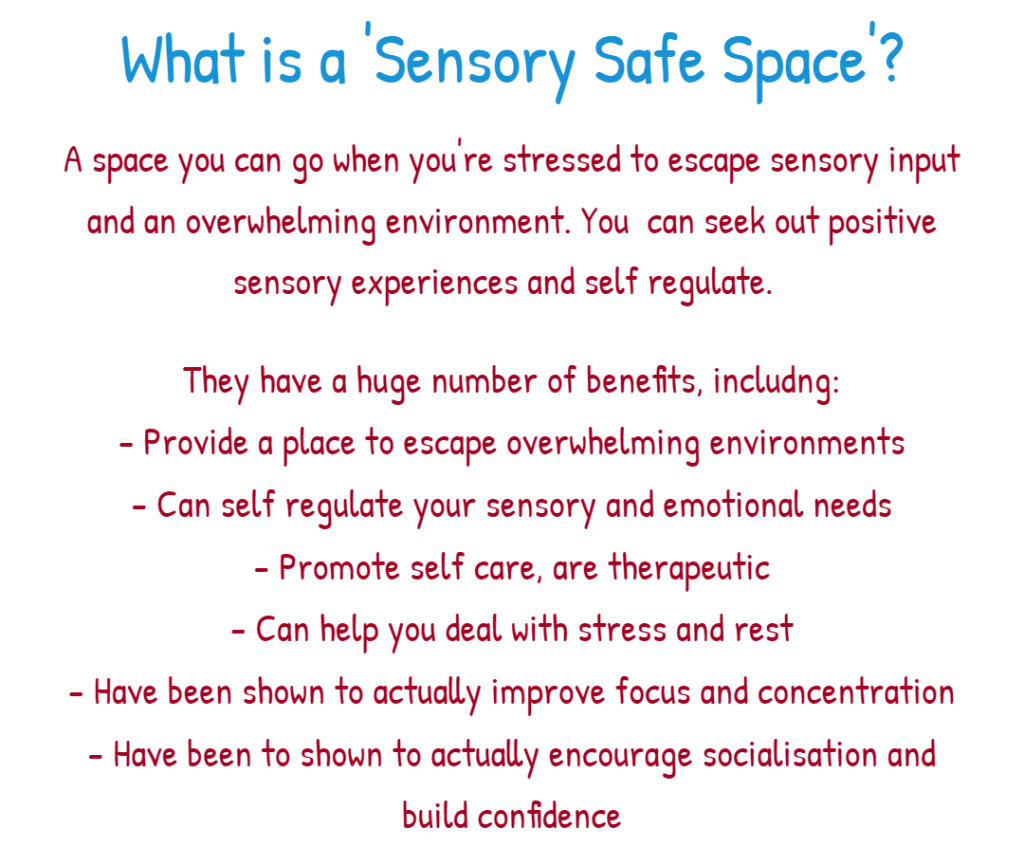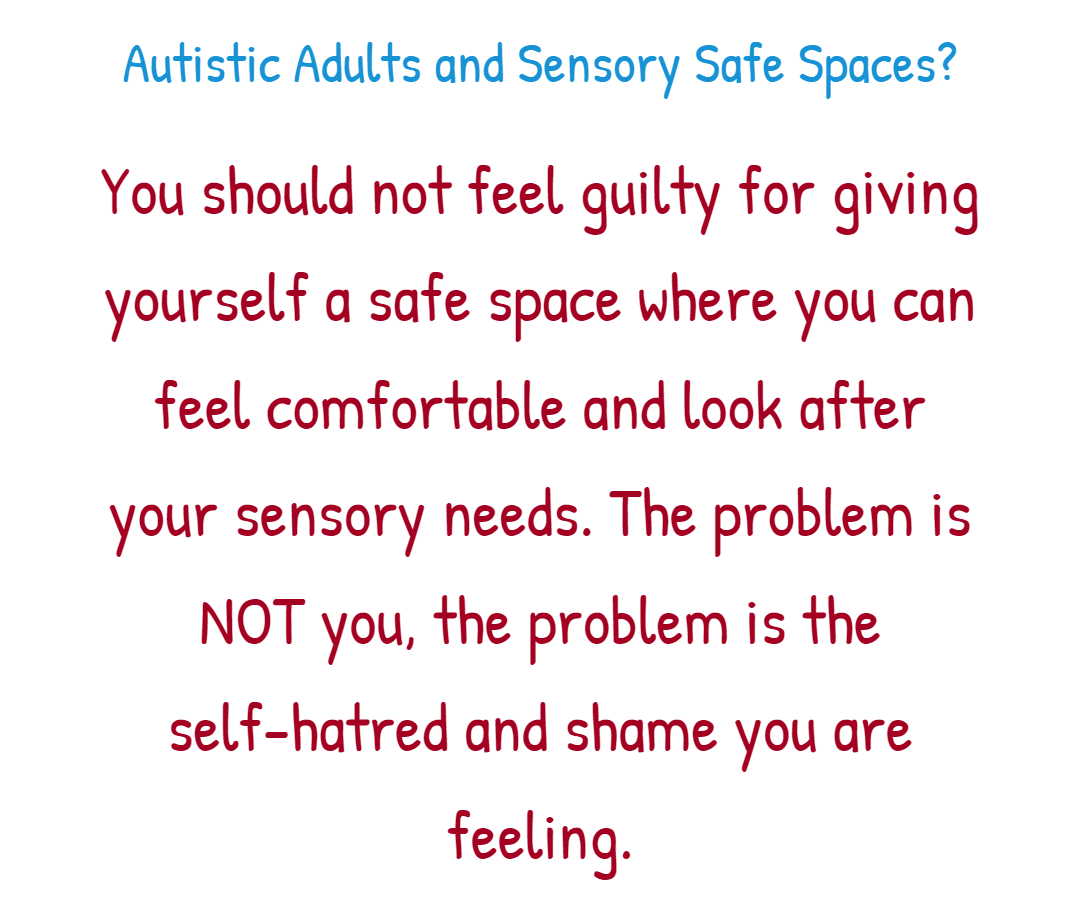I’ve been going through a very difficult time with a lot of changes, uncertainty, and general stress, and feeling…possibly like it might have caused a bit of ‘burnout’. Despite actually eating more and having more physical energy (which is a great thing), mentally I feel more unable than ever, especially when it comes to executive function tasks. I’ve been stimming a lot and taking it as easy as I can, but it made me think about sensory safe spaces, and kind of how we think of them really as like, a thing for children? A lot of support, actually, that we are finally recognising as important for neurodiverse people, we still think of as something for children only. It’s kind of shameful to be an adult, and to struggle? This is actually an inequality you see reflected in research; most research into sensory safe spaces involves autistic children and young people, NOT adults. It’s like we just assume people ‘grow out of it’ or their support needs lessen because they’re older!
A sensory safe space is a space you can go when you’re stressed to escape stressful sensory input and stimulation, and address your own sensory needs. Within that safe space, you can feel comfortable, and if you seek out certain sensory experiences, you can satisfy those. A lot of schools now have dedicated sensory rooms, and there’s also a growing number of music venues, cinemas, museums, and other leisure-type places, now creating them. In recent years we’ve also seen supermarkets and entertainment venues introduce initiatives like ‘autism-friendly’ hours and viewings, to help support people with sensory needs. While there’s a lot more that needs to be done, and a lot of these systems are far from perfect, I think it’s a great step in right direction – but so many of us feel so much personal shame and guilt for our needs that we don’t accomodate ourselves in our own private homes. I’ve always thought of having a sensory space safe as silly and childish, or something frivolous for people who are rich, but actually they’re really important, and being an adult doesn’t make my needs any less valid.
Sensory safe spaces have a huge number of benefits:
- Provide a place to escape overwhelming environments and rest
- Can self regulate your sensory and emotional needs
- Promote self care, are therapeutic
- Can help you deal with stress
- Have been shown to actually improve focus and concentration
- Have been to shown to actually encourage socialisation and build confidence
Also, for those who have faced trauma, having a private space where no one will bother you is really important, and many trauma programs actually encourage individuals to create a safe space to help move their brain out of ‘high’ alert mode.

Do you have a sensory safe space at home?? Why, or why not?
I was thinking of doing a post with ideas for setting them up on a budget!!
Articles used:
https://doi/full/10.1177/13623613231183541
https://www.sciencedirect.com/science/article/pii/S2090447922003501
https://doi.org/10.1080/13467581.2022.2047982

Leave a Reply